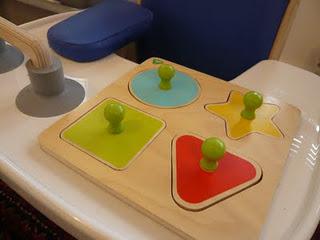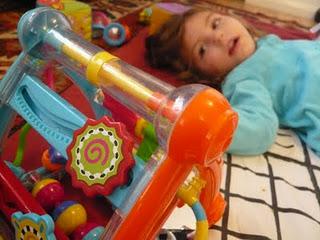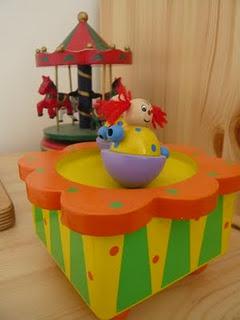 We have been touched by the messages of support received over the past two weeks. All were heartfelt, and some wrote with such eloquence and sensitivity - indicating a perspective coloured by personal experience of disability – that I hope they won’t mind me quoting some of their words as I go along.
We have been touched by the messages of support received over the past two weeks. All were heartfelt, and some wrote with such eloquence and sensitivity - indicating a perspective coloured by personal experience of disability – that I hope they won’t mind me quoting some of their words as I go along.As these well-wishers reminded me, life must go on. For weeks after the scan results, the temptation to stay in bed was incredibly strong. To my grief-heavy body, continuing with Isobel’s daily routine felt very unnatural, but half the time, there wasn’t anyone able to take over. Anyway, her complex twice-daily medication made the option of last-minute overnight care impossible.
Someone said that I had to find a way of boxing off my feelings, so to preserve better Isobel’s sense of contentment, but she herself acknowledged that it could be very hard.
‘You must still be reeling,’ another friend said in a mobile text after reading the last post. ‘It must feel like someone pulled the rug from under you both. I think the hope will return when the grief subsides but for now grieving is the best thing you can do for Isobel.’ Grief cannot be repressed, only managed. There were mornings when I’d suddenly drop the spoon I was feeding Isobel with and squeeze her muslin over my face, desperately trying to hide the racking sobs from her.
 ‘It will be a gift to her [for you] to work through the pain,’ the text continued, ‘so many parents are unable.’ She was right. Disability can break up marriages and families, because of the way it brings out unwanted feelings and prejudices.
‘It will be a gift to her [for you] to work through the pain,’ the text continued, ‘so many parents are unable.’ She was right. Disability can break up marriages and families, because of the way it brings out unwanted feelings and prejudices.Not that the child should be blamed for the damage, of course; far from it. Rather, we, as parents, have to find the strength to look within ourselves and question whether our own attitudes towards disability need to change, for the sake of the child. Sadly, some don’t – often ensuring an adverse impact on the child’s self-worth for years to come.
It doesn't have to be this way of course. A friend of my sister's had asserted to her that after having two children follow her eldest son, who had severe CP, she now felt that he'd 'made' the family. This was encouraging news, as I am 16 weeks pregnant, and looking forward to giving Isobel a sibling so close in age to her. She deserves it.
A third friend commented, ‘I still have a little ray of hope that Isobel will surprise you.’ As if in response to commanding Mass vows, we have to believe. By that I don’t mean praying to a deity at your bedside every night – although I can understand some parents’ compulsion to do so. (Myself being a bad Catholic, frankly I cannot see myself getting into that kind of habit.)
Rather, we must remember that we still don’t know what Isobel can achieve. When we apply that principle to ourselves as adults - regardless of age, religion, disability, gender, sexuality or race - we don’t know what we can achieve either. Isobel is not a lost cause.
Nevertheless, every ray of hope we hold tight must come tinged with realism. Blind faith will not do, especially in the face of an ever-increasing pile of medical reports.
 It’s for that reason that we have started a fundraising campaign. Currently Isobel attends The PACE Centre every week for rehabilitation exercises, but recently it was recommended that she go twice a week instead. Parents are usually asked to contribute towards the costs of such sessions or, failing that, encouraged to fundraise.
It’s for that reason that we have started a fundraising campaign. Currently Isobel attends The PACE Centre every week for rehabilitation exercises, but recently it was recommended that she go twice a week instead. Parents are usually asked to contribute towards the costs of such sessions or, failing that, encouraged to fundraise.Given the values PACE attaches to consistently high-quality specialist services – thanks to the philosophy that they promote with their own name (Positive Achievement inspired by the principles of Conductive Education) – this is hardly surprising. One 90-minute session a week costs £3,000 annually. Goodness knows how much it will cost to get Isobel into their nursery, as she will need to evidently soon.
‘Our brains doesn’t make us, our spirit does,’ another well-wisher commented on the blog. ‘Ultimately this is what always connects humanity; when push comes to shove, academia doesn’t connect, nor do complex formulas. Humanity is about love, empathy and a whole lot of something else that is not even tangible.’
It’s also what leaves behind the greater legacy. What we all do with Isobel – not just Miles and I but also PACE, Stepping Stones, her childminder, everyone placed in her care – is just part of what could well be a very momentous journey for her. The material trappings that so many aspire to in their lives – perfect hair, clothes, homes, holidays, cars - means nothing, and will fade to nothing, compared to this.
To donate to the fundraising campaign, click here:


